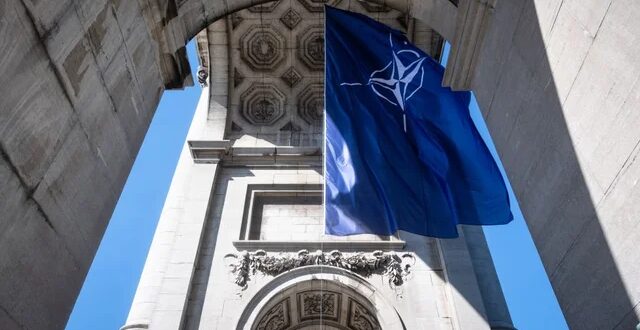In the current crisis involving Russia, Ukraine and Western countries, it is often asserted that because the NATO alliance has an “open-door” policy, Ukraine must retain its right to join the alliance someday. That is incorrect.
While Russia should not be allowed to veto Ukraine’s hypothetical membership in NATO, there is, in fact, no NATO open-door policy — at least not on the unconditional terms that are often implied when that concept is invoked. Nor is there anything in the 1945 United Nations Charter that provides countries any automatic rights to join security organizations of their choosing; that treaty only ensures membership in the United Nations.
It is true that, after the Bucharest summit of 2008, NATO leaders promised that, someday, Ukraine and Georgia would be invited into the alliance. But no schedule was proposed, and no interim security guarantees were offered. Crucially, no legislature was consulted, either — the way that the U.S. Senate and similar bodies in other NATO countries must approve any actual additions to the alliance’s membership. Because NATO is a mutual-defense organization, any addition of a new member carries solemn responsibilities and cannot be done by executive fiat.
Here’s how NATO’s official policy on adding members actually reads, from Article X of the Washington Treaty that created the alliance in 1949:
“The Parties may, by unanimous agreement, invite any other European State in a position to further the principles of this Treaty and to contribute to the security of the North Atlantic area to accede to this Treaty.”
Article X is conditional. New members can join NATO only if their membership would enhance regional security.
Throughout four decades of the Cold War, this provision was used to add four members to the 12 that founded the organization. Greece and Turkey joined in 1952. West Germany joined in 1955, the same year that formal occupation of that country by France, Britain and the United States finally ended and a German military was again allowed. Spain joined in 1982. In the three decades since the Cold War ended, NATO has added 14 more countries, making for a total of 30. This history shows we did not expand NATO much when it was focused on the core mission of deterrence — and maybe that should be a valuable guideline for today, too.
It is difficult to see how adding Ukraine to NATO could enhance the region’s security. More likely, it would further antagonize Russia and increase, rather than reduce, the risks of some type of conflict. Although his methods are abhorrent, Russian President Vladimir Putin’s recent military maneuvers along Ukraine’s borders, and his ongoing willingness to stoke conflict within Ukraine covertly, suggest that he would not be deterred from committing some type of further aggression if Ukraine were formally offered membership in an alliance that was, after all, created to address a Soviet threat that no longer exists.
Putin might simply invade before NATO parliaments could ratify Ukraine’s accession, preempting any application of NATO’s Article V mutual-defense pledge. Or, he might amplify various forms of harassment and covert activity calculated to fall below our threshold for response. Whether he would calculate correctly is, of course, a different matter. Dangers would grow, not recede.
None of this is to suggest that we concede Ukraine, Georgia or any other country to a Russian-dominated sphere of influence. We need not foreclose the idea of NATO membership for these former Soviet republics, unless and until Russia works with us to create alternative security structures that verifiably protect the safety of those sovereign states. In undertaking such a discussion, however, we do need to remember the core fact that NATO does not have anything like an unconditional open-door policy — nor should it.
 Eurasia Press & News
Eurasia Press & News




